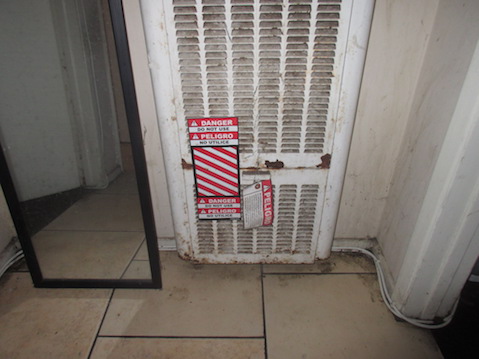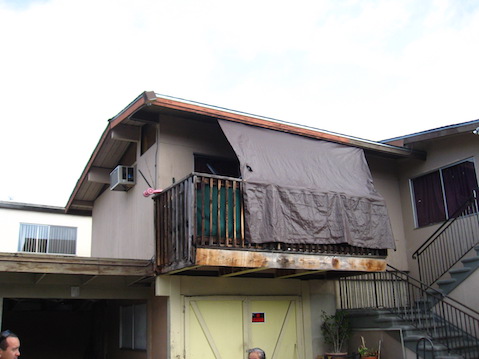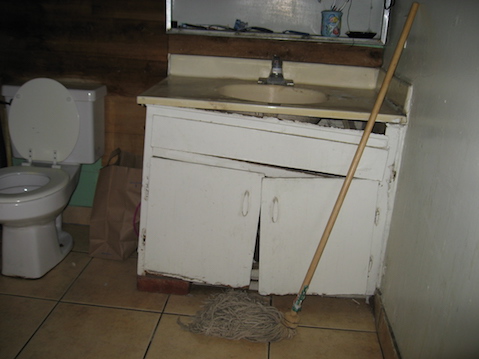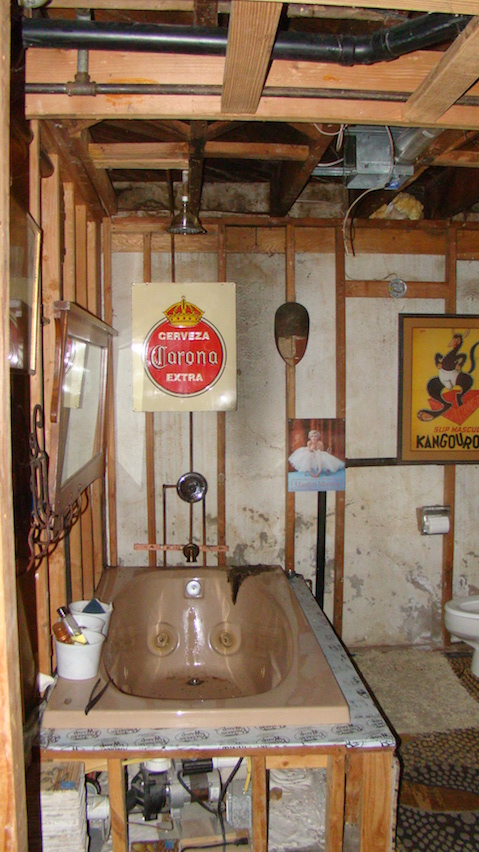Inspectors Wrap Up Pini Sweep
One Building Red-Tagged, 12 Tenants Relocated in Housing Inspection Raid

A team of about 20 city inspectors, escorted by armed police officers, concluded a two-day safety-inspection sweep of a handful of rental properties owned by landlord Dario Pini, “red-tagging” one, relocating 12 tenants, and yellow-tagging another. City Attorney Ariel Calonne said the surprise inspections revealed as many as 16 beds jammed into one two-bedroom unit and an abundance of rat feces, cockroach infestations, faulty water heaters, and bad plumbing. At some, outdoor patios had been converted into plastic-tarp-encased living quarters.

Twelve of the tenants, Calonne said, were currently being housed at City Hall’s expense elsewhere until the properties in question can meet basic habitation standards. Calonne would not say how many properties exactly had been inspected or where they were, though Pini’s attorney, Larry Powell, stated city inspection teams had raided eight Pini properties, including Pini’s personal residence on the Riviera. “They searched his home,” Powell exclaimed. “Dario’s sister — who lives right next door — was really upset; you can imagine.”
Calonne stated that police had to intervene on at least two occasions to prevent Pini from interfering with city officials as they interviewed tenants. In one instance, Calonne reported, Pini was “yelling and screaming” as assistant city attorney John Doimas sought to question a tenant. Attorney Powell said the landlord felt protective of both his property and his tenants, and that in these instances, Pini was seeking to communicate with his tenants at the same time city official were.
While city inspectors had search warrants authorizing the use of force, no force, Calonne said, was used. On a few occasions, he acknowledged, locksmiths removed locks.
Calonne said he was most surprised by the large number of children whom inspectors found at the properties. “This isn’t just about buildings or neighborhoods being intruded upon,” said Calonne. “It’s about kids having to live in slum conditions in 21st-century America.”

The city attorney is hoping to use the results of the inspections to persuade a judge that Pini is not capable of managing his properties in a safe and sanitary fashion and that such management needs to be turned over to a court-appointed officer known as a “receiver.” In the meantime, however, Calonne has been waging a vigorous media campaign against Pini, emailing a handful of photographs gleaned from the inspections to the local media.

Pini’s attorney Larry Powell acknowledged some of the photos appear grim, but he questioned how representative they were of the conditions at most of the properties inspected. “That could be just one or two places,” he said. “We just don’t know till we see everything they got.” Powell said Pini cannot be expected to clean up substandard living conditions unless his tenants notify him, adding that Pini keeps complaint forms in the office where rents are paid. “How can he take care of problems he doesn’t know about?”
Powell stated Pini has been providing housing for low-income families for decades in Santa Barbara. Calonne countered that Pini has been taking unfair advantage of immigrant renters too vulnerable to insist on their rights. Powell said Pini includes language in his lease limiting the number of tenants allowed to occupy his units. If his tenants sublease that space, Powell asked, how is Pini to know? “Tenants who sublease are effectively employees of Pini Inc.,” answered Calonne. “The idea that Pini can turn a blind eye to these conditions is an insult to the community.”



